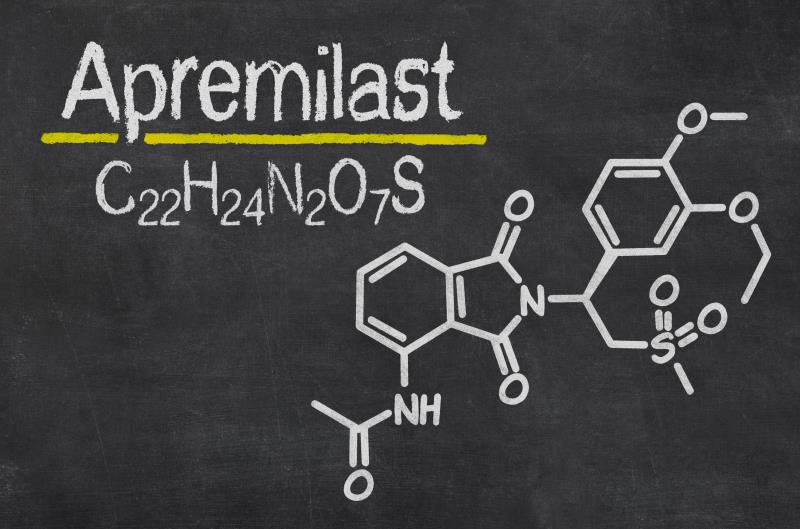Apremilast improves oral ulcers in patients with Behçet’s syndrome





Treatment with apremilast, an oral phosphodiesterase 4 inhibitor, significantly reduced the number of oral ulcers in patients with Behçet’s syndrome, according to the RELIEF* study presented at EULAR 2020.
This phase III, double-blind, placebo-controlled trial enrolled 207 adults (aged ≥18 years) with active oral ulcers related to Behçet’s syndrome. Participants were randomized to receive either oral apremilast 30 mg twice daily (n=104) or placebo (n=103) for 12 weeks, followed by a 52-week extension phase. [EULAR 2020, abstract OP0028]
At 12 weeks, patients who received apremilast had a significant reduction in the number of oral ulcers, as shown by a lower AUCWk0-12** (129.5 vs 222.1; p<0.0001), than those who received placebo.
Apremilast-treated patients also had significantly reduced pain associated with oral ulcers, as indicated by a negative change from baseline in the visual analog scale, compared with the placebo-treated patients (least-squares mean difference, -40.7 vs -15.9; p<0.0001).
Moreover, a higher percentage of patients on apremilast had reduced oral ulcer pain based on MCID*** thresholds of ≥10 mm (77.9 percent vs 48.5 percent), ≥30 mm (74.0 percent vs 42.7 percent), and ≥50 mm change from baseline (67.3 percent vs 36.9 percent) than those on placebo at 12 weeks.
“In this population of patients with moderate oral ulcer pain scores at baseline, despite prior treatment with ≥1 nonbiologic therapy, apremilast [therapy] … provided significantly greater improvements [in the number of oral ulcer and pain associated with oral ulcer at week 12],” according to Dr Gülen Hatemi from Istanbul University–Cerrahpaşa, Cerrahpaşa Medical School and Behçet’s Disease Research Center in Istanbul, Turkey.
“Oral ulcers associated with Behçet’s syndrome are often painful, may interfere with the ability to eat and can negatively affect quality of life, … [our] results indicate a clinically meaningful treatment effect of apremilast on oral ulcer associated with Behçet’s syndrome,” she added.
*RELIEF: A phase 3 randomized, double-blind study to evaluate the efficacy and safety of apremilast (CC-10004) in subjects with active Behçet's disease
**AUCWk0-12: Area under the curve for the number of oral ulcer through week 12
***MCID: Minimal clinically important difference